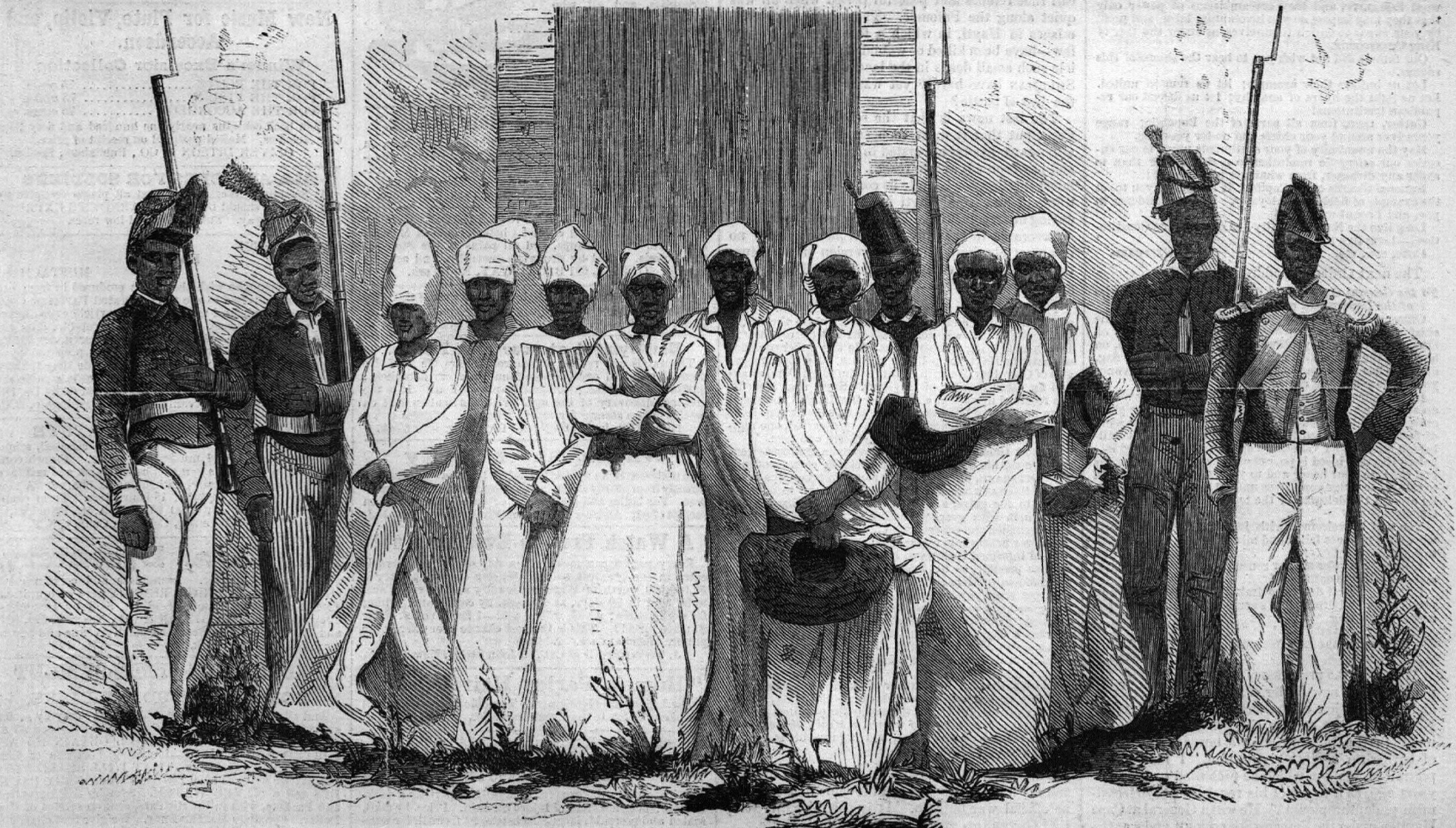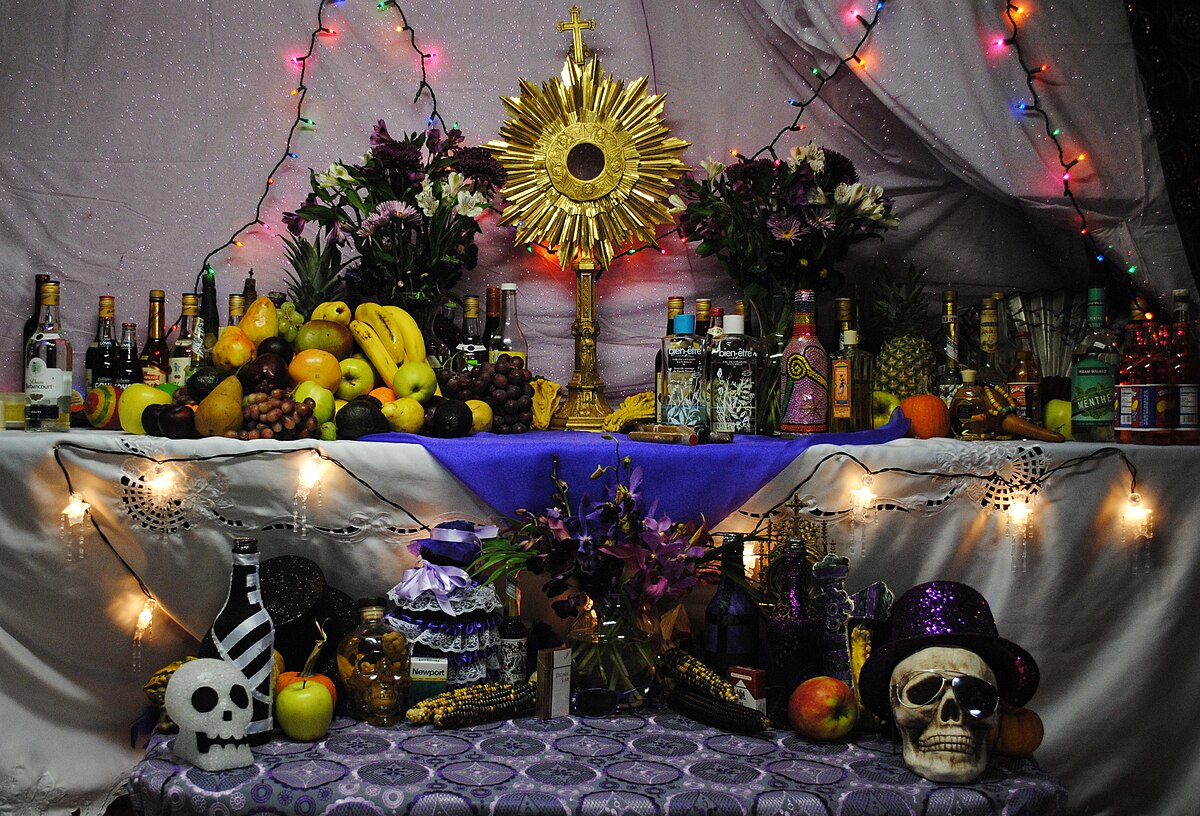Spirituality in Haitian Vodou
Spirituality in Haitian Vodou
By Frank Nieblas
What is Vodou?
According to Karen McCarthy Brown, vodou is the name assigned to the various religious practices that
originated in Haiti. Only until recently, Haitians have started using the word vodou to describe their religion.
This religion is still the dominant religion in Haiti today, and it is even largely practiced in some other places such
as New Orleans and Santiago, Cuba.
Like many other non-Chrisitan religions, western society has seriously misrepresented Vodou. Americans have
adopted the word vodou as a derogatory term for black magic.

History of Haitian Vodou
According to Britannica, “Vodou is a creolized religion formed by colonial Europeans and native Haitians’ interactions with the beliefs of African slaves who had been brought to colonial Haiti which was known then as Saint-Domingue”.
These African slaves that were brought in the 16th century were forced to convert to Catholicism, but they continued to secretly practice voodoo. This “participation” in the Catholic church forced by the Europeans led to the syncretization of voodoo with Catholic principles.
Vodou author Karen Brown states that “The word vodou is derived from the Fon “vodun”, which means “god” or “spirit”.” This language was spoken in the African kingdom of Dahomey which is now Benin.

The Philosophy of Vodou
Britannica states that the fundamental principle of Vodou is that everything is spirit. Followers of Vodou even see
themselves as spirits.
They see themselves as “spirits who inhabit the visible world”, and they see invisible spirits as spirits who live in
the unseen “mythic land called Ginen.”
Arguably, “vodun” which is the previously discussed Fon word for “god” or “spirit” is a fitting name for the religion
because the primary goal and activity of Vodou is to “serve the spirits.”
What is meant by “serving the spirits” is the act of offering prayers and practicing “rites directed at God and
particular spirits in return for health, protection, and favour.”

The God of Haitian Vodou
Believers of Vodou do believe in a Supreme God called Bondye which comes from the French phrase
“Bon Dieu” which means “good god.”
Bondye is considered unreachable. Because of this, believers pray to the Loa which are lesser entities to Bondye.

The Loa of Haitian Vodou
The loa are the primary spirits of vodou, and they were created by Bondye to assist the living in their daily affairs.
Because of catholicism's influence on vodou, sometimes a Loa is associated with a particular saint.
There are over 1,000 different loa, and they’re grouped in 17 different pantheons.
The two groups with the biggest roles are the Rada and Petwo pantheons.
The Rada loa are often associated with a peaceful demeanor and benevolent attitude while the Pewtwo loa are
commonly thought of as forceful, aggressive, and dangerous.
Arguably, Legba is one of the most well known and respected loa. Papa Legba is a powerful loa who is “the
master and keeper of crossroads.” He makes communication with the spirits possible, and he is greatly
honored and served by the living.
Other remarkable loa and their roles and symbolism include:
- Danbala Wèdo and his wife, Ayida Wèdo, who stand for the power and eternity of life.
- Èzili Freda who is known as the loa of love.
- Loko who is the loa of trees and vegetation.

References:
McAlister, E. (2020). Vodou. Encyclopædia Britannica, inc. Retrieved from https://www.britannica.com/topic/Vodou
Mazama, A. (2017). Lwa. Encyclopædia Britannica, inc. Retrieved from https://www.britannica.com/topic/lwa-Vodou#ref318158


Comments
Post a Comment